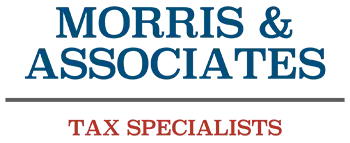Are you struggling to pay your taxes? Have you received a notice from the IRS stating that they are going to levy your assets? If so, you may be eligible for an Offer-in-Compromise. An Offer-in-Compromise is a program offered by the IRS that allows taxpayers to settle their tax debt for less than the total amount owed. In this blog post, we will discuss how to determine if you are an Offer candidate and what steps you need to take in order to apply.
What Is An Offer In Compromise?
An Offer-in-Compromise is an agreement between the IRS and a taxpayer to settle their tax debt for less than what they owe. There are two types of Offers: Doubt as to Collectibility (DATC) and Doubt as to Liability (DAL). A DATC Offer means that the taxpayer does not have the ability to pay off their tax debt and a DAL Offer means that they do not owe what has been assessed against them.
Determining If You Are An Offer Candidate
The IRS will consider your income, expenses, assets, and liability when determining whether or not you qualify for an OIC. If these factors show that you can afford to pay your tax debt in full, you will not be eligible for an Offer. However, if you are unable to pay your taxes due to a lack of income or assets, you may be a good candidate for an Offer-in-Compromise.
In order to determine if you are an Offer candidate, the IRS will first look at your income. If you have disposable income (income after expenses), the IRS will not consider an Offer-in-Compromise. However, if you do not have any disposable income, you may be a good candidate for an Offer.
The IRS will also look at your assets. If you have no assets or the value of your assets is less than the amount of your tax debt, you may be a good candidate for an Offer.
The final factor that the IRS will consider is your liability. If you believe that you do not owe the full amount of taxes that have been assessed against you, you may be a good candidate for an Offer-in-Compromise.
Summary of Qualifications for AN Offer In Compromise
- The IRS will consider your income, expenses, assets, and liability when determining whether or not you qualify for an OIC.
- If you have disposable income (income after expenses), the IRS will not consider an Offer-in-Compromise.
- In case you do not have any disposable income, you may be a good candidate for an Offer.
- The IRS will also look at your assets. If you have no assets or the value of your assets is less than the amount of your tax debt, you may be a good candidate for an Offer.
- The final factor that the IRS will consider is your liability. If you believe that you do not owe the full amount of taxes that have been assessed against you, you may be a good candidate for an Offer-in-Compromise.
How To Apply For An Offer-In-Compromise
The steps to apply for an Offer-in-Compromise are as follows:
- Complete and submit Form 433-A, Collection Information Statement for Wage Earners and Self-Employed Individuals
- Submit payment for the application fee
- Send all required documents to the IRS
When applying over the internet, use the Online Application Tool (OAT)
The application fee for an Offer-in-Compromise is $150. The IRS will not review your application until they have received both the form and the payment.
It can take up to six months for the IRS to review your application and make a decision. During this time, you will be responsible for making monthly payments on your tax debt.
If you are approved, the IRS will enter into an agreement with you to pay off your tax debt in installments. If you are not approved, the IRS will send you a letter explaining why you were not accepted and will continue to pursue collection action against you.
It is important to note that an Offer-in-Compromise is not a guaranteed solution to your tax debt. The IRS may still pursue other collection methods, such as wage garnishment or asset seizure if you are accepted into the program and do not make monthly payments.
We Can Help You Improve Your Chances of Qualifying for an OIC
In case you are considering applying for an Offer-in-Compromise, it is important to seek the help of a qualified tax professional like Morris and Associates. We have many years of experience helping taxpayers resolve their tax debt. We can review your financial situation and determine whether or not you are a good candidate for an OIC. Contact us today for help solving your tax problems.







